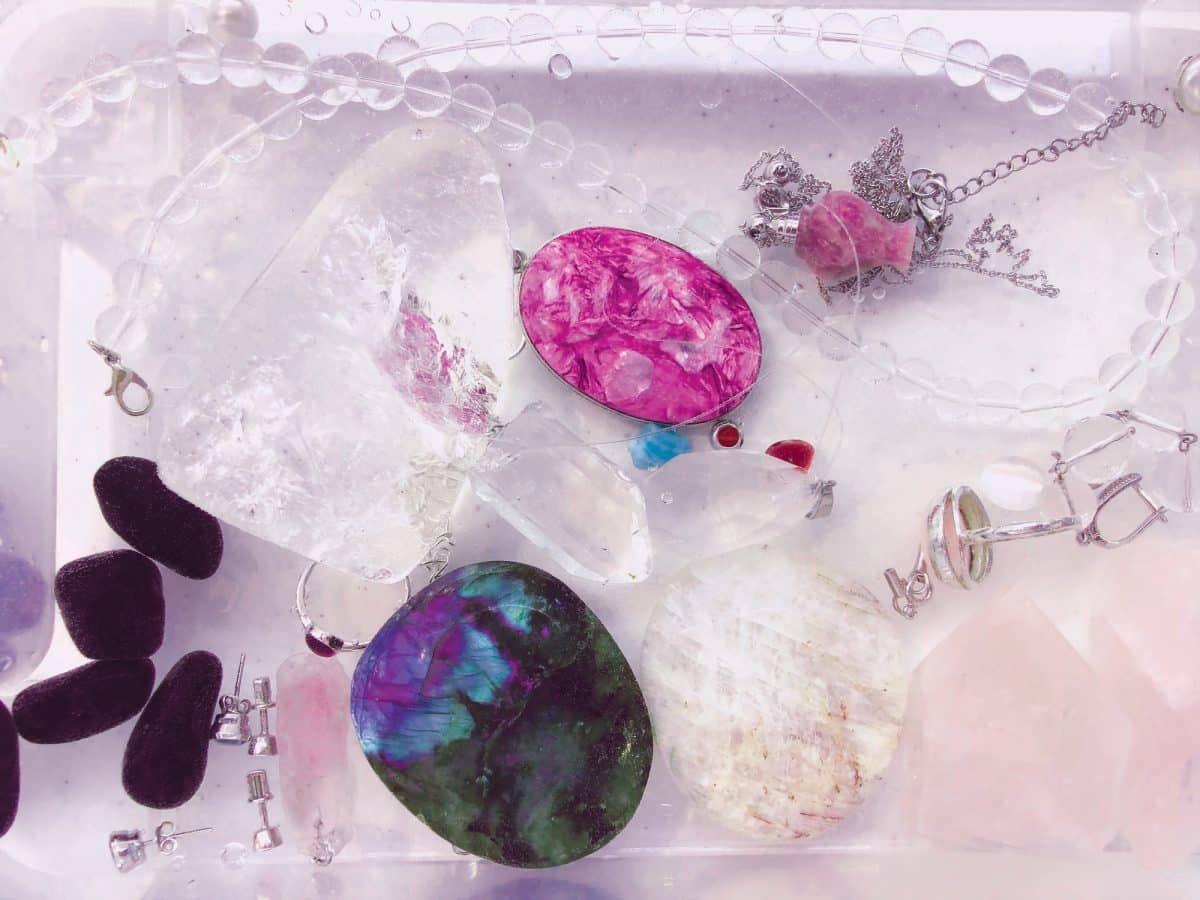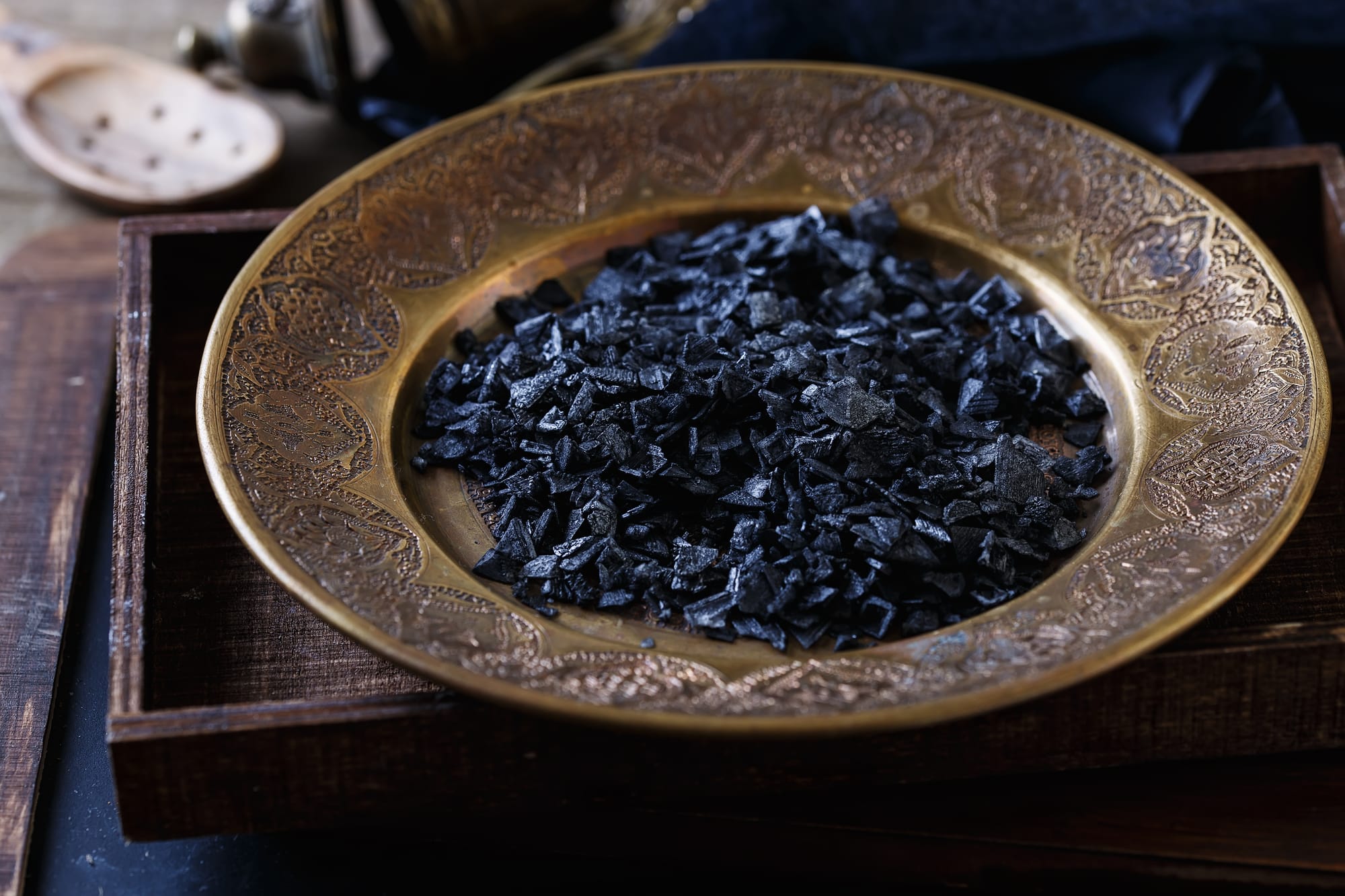Herbalism: Growing Your Own Magical Garden
Welcome to the captivating world of herbalism and the extraordinary art of growing your own magical garden.
Whether you are an aspiring herbalist, a nature enthusiast, or simply captivated by the notion of harnessing the innate power of nature, this comprehensive article will provide you with invaluable insights, expert tips, and detailed techniques to help you create and nurture your own flourishing magical garden.
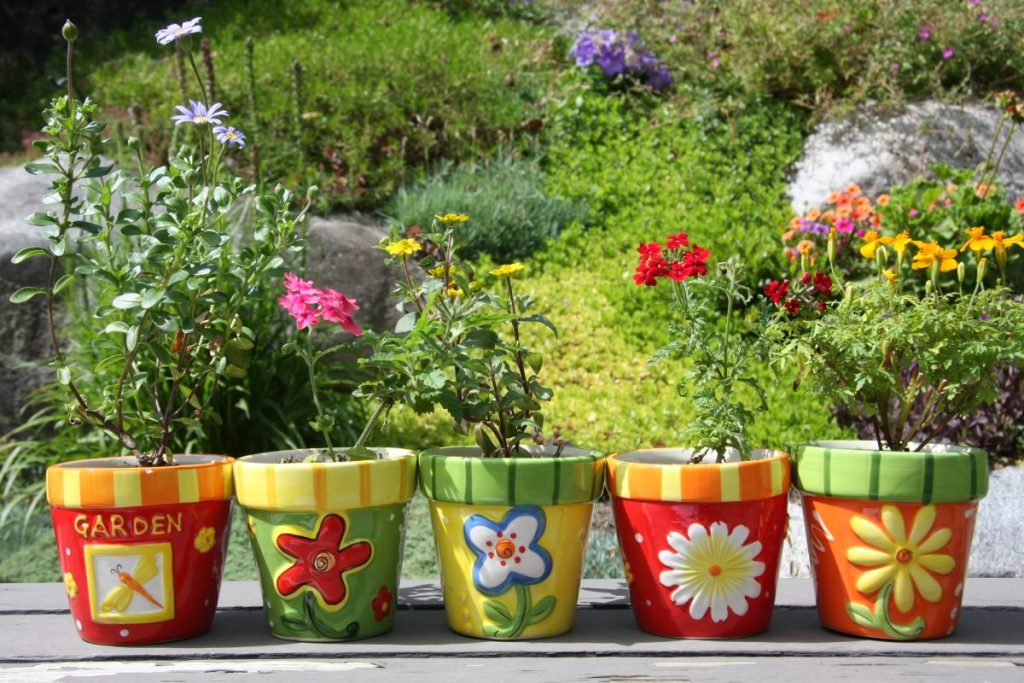
Table of Contents
The Magic and Science of Herbalism
Herbalism, also known as herbology or botanical medicine, is a captivating blend of ancient wisdom and modern scientific knowledge. It is the practice of utilizing plants and their extracts for medicinal, therapeutic, and spiritual purposes.
Herbalism has been an integral part of human history, spanning across diverse cultures and civilizations, including ancient Egyptians, Greeks, Chinese, and Native Americans.
The magic of herbalism lies in the astounding properties and energies present within various plants. Plants, through millions of years of evolution, have developed an astonishing array of chemical compounds, essential oils, and bioactive substances.
These natural constituents possess remarkable healing properties and energetic vibrations that can positively impact our physical, emotional, and spiritual well-being. By cultivating and tending to your own magical garden, you can intimately connect with these transformative powers, forging a profound harmony with nature itself.
Understanding the Benefits of Herbal Gardens
Cultivating a magical garden of herbs offers a multitude of benefits that extend far beyond the realm of mere aesthetics. Let us delve into the incredible advantages that await those who embark on this wondrous journey.
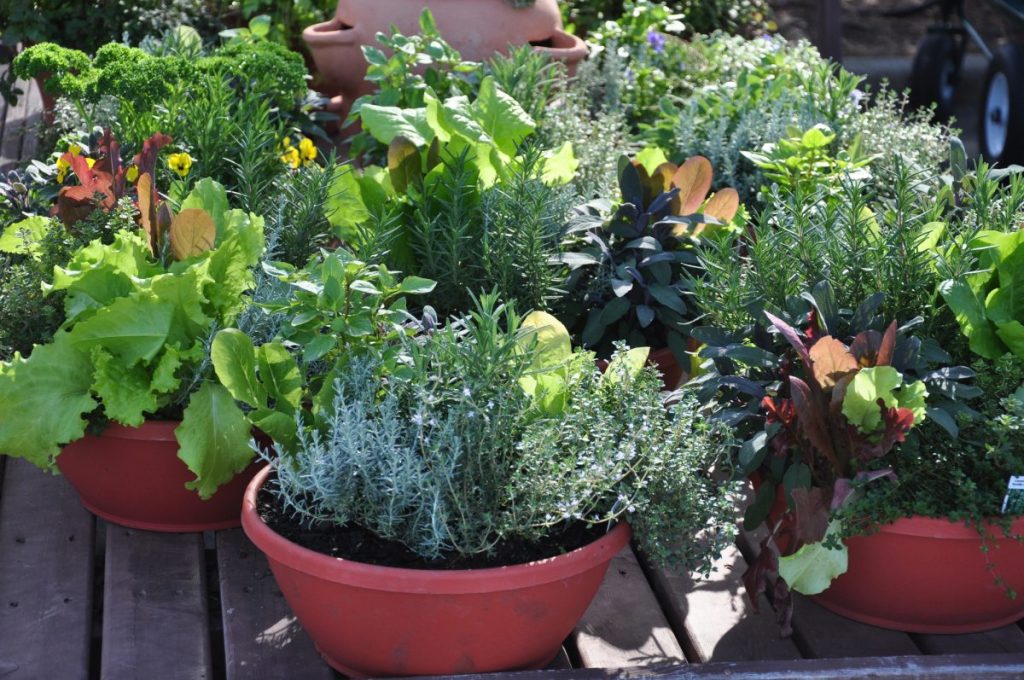
1. Health and Wellness
Herbal gardens are a treasure trove of natural remedies and holistic wellness. By growing your own medicinal herbs, you gain access to a diverse range of healing plants that can aid in the prevention and treatment of various ailments.
From soothing chamomile teas to immune-boosting echinacea tinctures, your garden can become a personal apothecary, empowering you to take charge of your well-being.
2. Sustainability and Self-Sufficiency
Creating your own magical garden promotes sustainability and self-sufficiency. Instead of relying solely on commercially produced herbs, you can cultivate a self-renewing source of fresh, organic herbs right at your doorstep.
By reducing your reliance on mass-produced products, you contribute to a healthier environment and foster a deeper connection with nature’s bountiful gifts.
3. Mental and Emotional Well-being
Gardening, in itself, is a therapeutic and meditative practice. The act of nurturing and tending to plants can provide a sense of calmness, tranquility, and purpose.
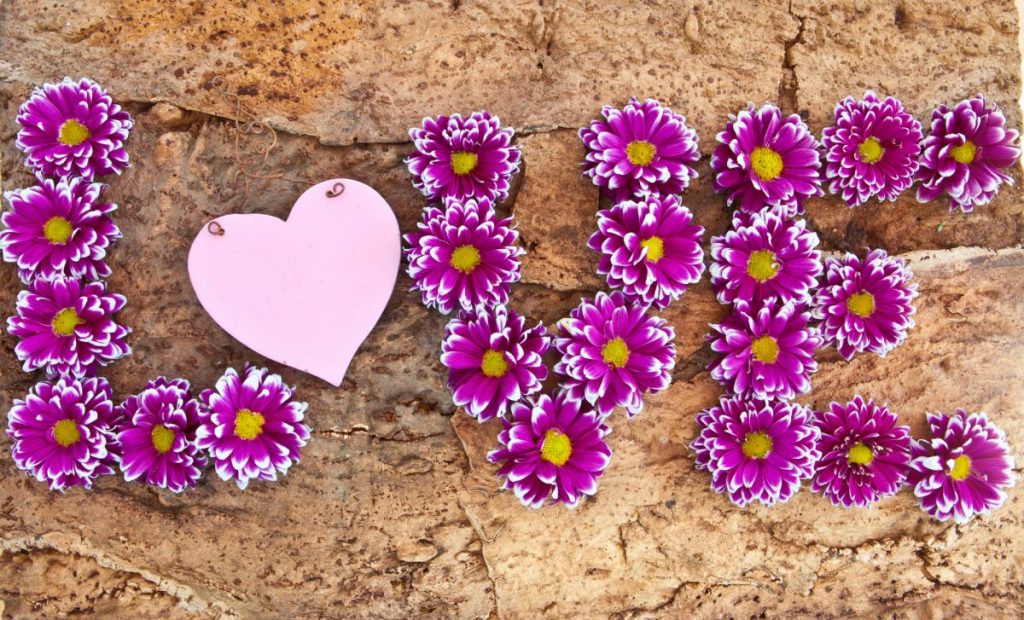
In addition, the aromatic essences and natural vibrations emitted by the herbs can have a profound impact on our mood, promoting relaxation, clarity, and emotional balance.
4. Connection with Nature and Spirituality
A magical garden serves as a gateway to a profound connection with the natural world and the spiritual realm. Engaging in the process of planting, nurturing, and harvesting herbs can deepen your appreciation for the cycles of life, the seasons, and the interconnectedness of all living beings.
It provides a sacred space for meditation, rituals, and communing with the divine, allowing you to tap into ancient wisdom and explore your own spirituality.
Selecting the Right Plants for Your Magical Garden
Selecting the perfect herbs for your magical garden is a crucial step in your journey as an herbalist. Each herb possesses its own unique qualities, energies, and therapeutic properties.
Here, we present you with an extensive list of enchanting herbs, categorized based on their specific benefits and magical attributes:
Herbs for Calm and Relaxation
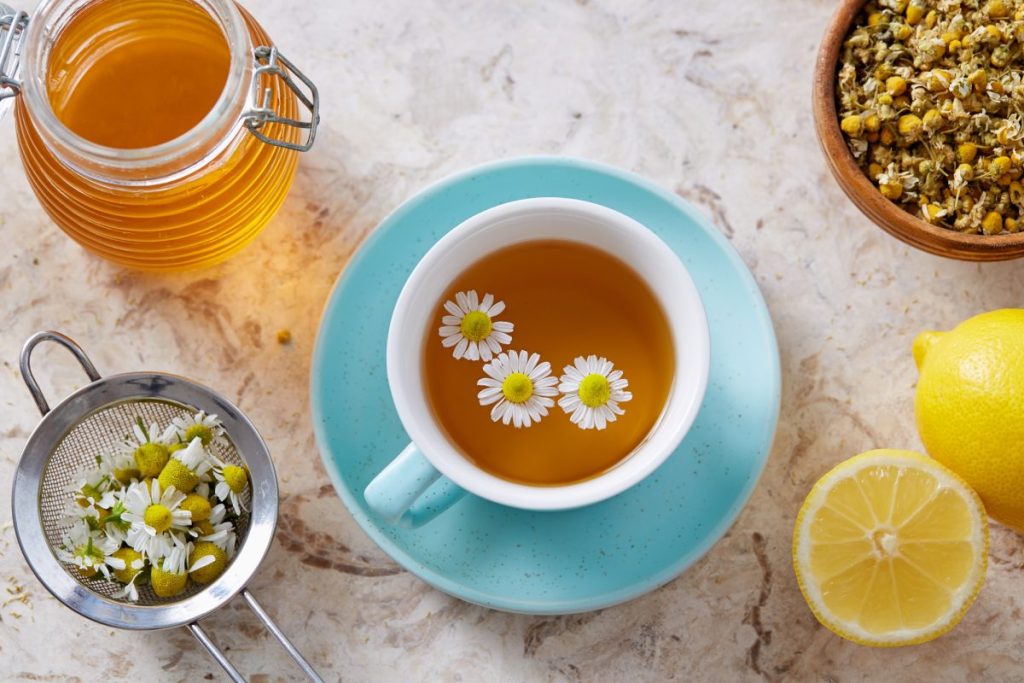
- Lavender (Lavandula angustifolia): Lavender is a classic herb renowned for its calming and soothing properties. Its delicate purple flowers and delightful fragrance create a serene atmosphere, perfect for reducing anxiety, promoting restful sleep, and alleviating stress.
- Chamomile (Matricaria chamomilla): With its dainty white and yellow flowers, chamomile has long been cherished for its gentle sedative and anti-inflammatory properties. It is an ideal herb for relaxation, relieving insomnia, soothing digestive discomfort, and nurturing emotional well-being.
- Lemon Balm (Melissa officinalis): Lemon balm, with its lemony scent and vibrant leaves, is a delightful addition to any magical garden. It is known for its calming effects on the nervous system, helping to ease anxiety, improve mood, and support mental clarity.
Herbs for Vitality and Energy
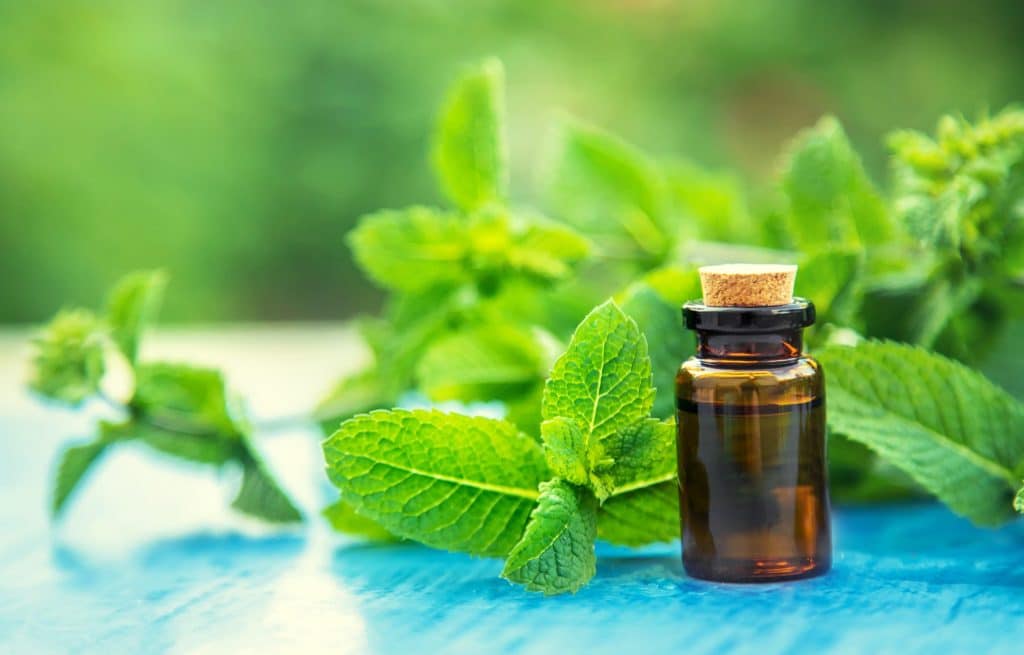
- Rosemary (Rosmarinus officinalis): Rosemary, with its fragrant needle-like leaves and delicate blue flowers, is a symbol of remembrance and mental clarity. It is an invigorating herb known for improving focus, memory retention, and overall cognitive function.
- Peppermint (Mentha x piperita): The cool, refreshing taste and invigorating scent of peppermint make it a popular choice for stimulating energy and promoting mental alertness. It is also known for its ability to alleviate headaches, aid digestion, and provide relief from nausea.
- Ginseng (Panax ginseng): Ginseng is a highly valued herb in traditional Chinese medicine, renowned for its adaptogenic properties. It helps the body adapt to stress, boosts energy levels, supports the immune system, and promotes overall vitality.
Herbs for Protection and Purification
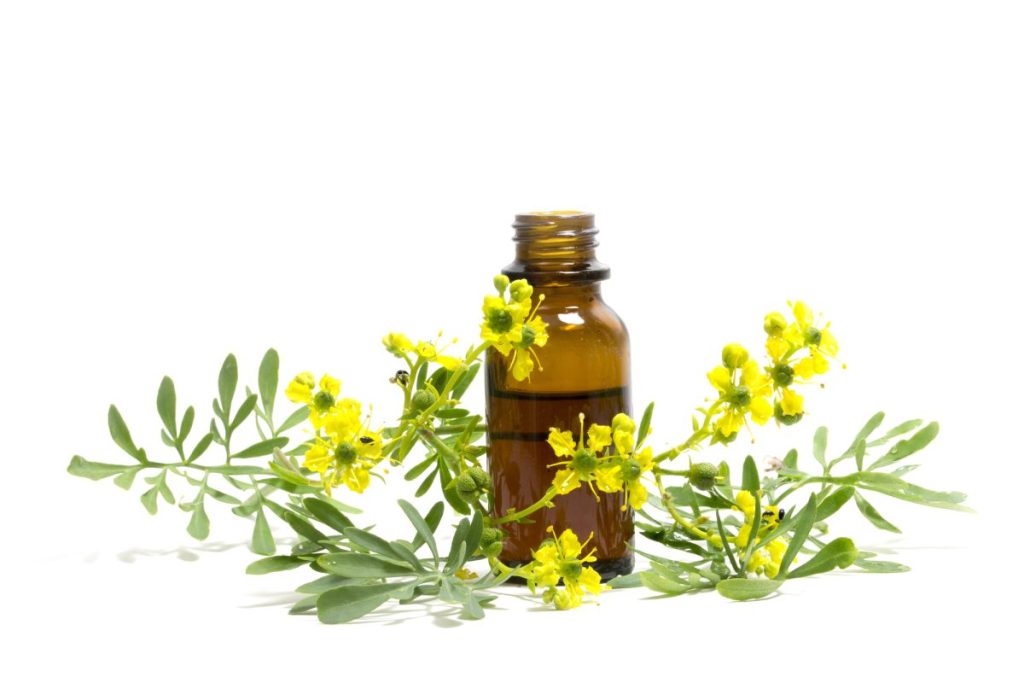
- Sage (Salvia spp.): Sage, with its velvety gray-green leaves and distinctive aroma, has long been used for purification and protection. It is often used for smudging, creating sacred spaces, and cleansing negative energies.
- Basil (Ocimum basilicum): Basil is not only a culinary delight but also a potent herb for protection and warding off negative influences. It is believed to promote harmony, prosperity, and good fortune, making it an essential herb for spiritual rituals and magical workings.
- Rue (Ruta graveolens): Rue is a powerful herb with a rich history in folk traditions. It is considered a powerful protector and is often used in rituals to ward off evil spirits, negative energy, and hexes.
Herbs for Love and Romance
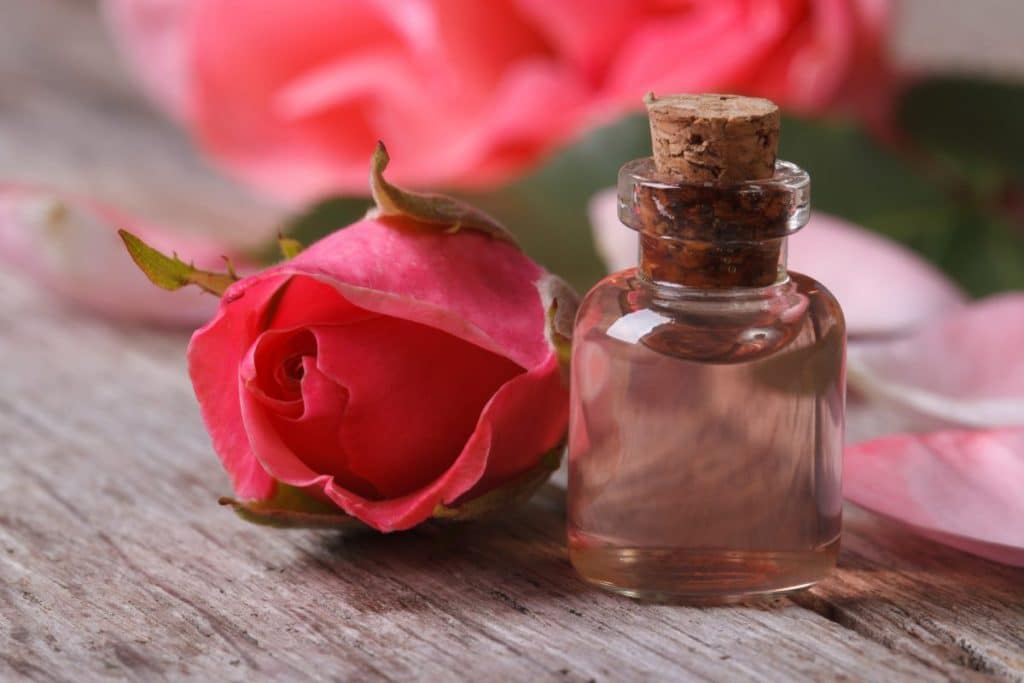
- Rose (Rosa spp.): Roses are synonymous with love and beauty. Their exquisite blooms and intoxicating scent make them a cherished addition to any magical garden. Roses are used in love spells, potions, and rituals, invoking passion, romance, and heartfelt connections.
- Jasmine (Jasminum spp.): Jasmine, with its alluring fragrance and delicate white flowers, is associated with love, sensuality, and attracting positive relationships. It is often used in love charms, aphrodisiac blends, and aromatherapy for enhancing intimacy and passion.
- Ylang-Ylang (Cananga odorata): Ylang-ylang is an exotic tropical flower known for its captivating aroma and potent aphrodisiac properties. It is believed to awaken sensuality, deepen emotional connections, and ignite passion and desire.
These are just a few examples of the myriad herbs available for your magical garden.
Explore the vast world of herbalism, research the properties and associations of different herbs, and let your intuition guide you in selecting the ones that resonate with your intentions and goals.
Designing Your Magical Garden
Designing your magical garden is an exhilarating process that allows you to create a sacred space brimming with natural wonders and enchantment.
Consider the following factors when planning the layout of your garden:
Location and Sunlight
Choose a location that receives ample sunlight, as most herbs thrive in full sun. However, keep in mind that some herbs, like mint and parsley, can tolerate partial shade.
Ensure that your garden receives at least six hours of sunlight per day for optimal growth.
Soil Preparation
Prepare the soil by removing any weeds, rocks, or debris. Herbs generally prefer well-draining soil with a neutral pH level. Conduct a soil test to determine its composition and make necessary amendments.
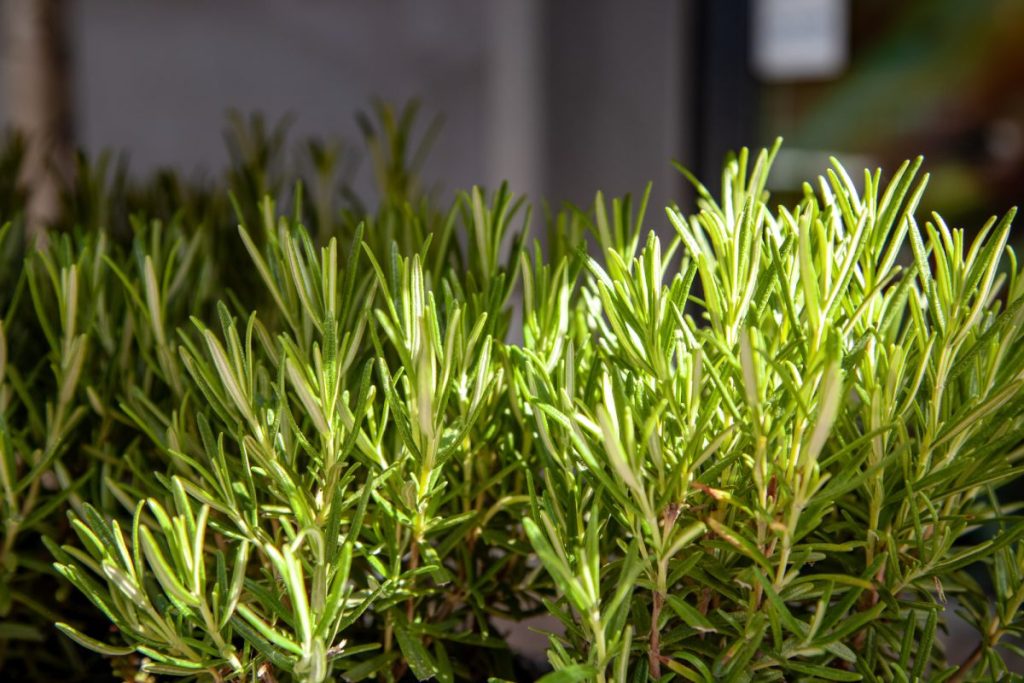
If your soil is heavy or clay-like, consider adding organic matter such as compost or aged manure to improve its texture and fertility.
Container or Ground Planting
Decide whether you want to plant your herbs directly in the ground or use containers. Containers offer flexibility, allowing you to move your herbs around if needed. Ensure that your containers have proper drainage holes to prevent waterlogging.
If planting directly in the ground, ensure proper spacing between herbs to allow for healthy growth and air circulation.
Companion Planting
Take advantage of companion planting to maximize the health and productivity of your magical garden. Companion plants are strategically placed together to enhance growth, repel pests, attract beneficial insects, and improve overall garden health.
For example, planting marigolds near tomatoes can repel harmful nematodes, while attracting pollinators.
Organic Gardening Practices
Embrace organic gardening practices to cultivate a vibrant and chemical-free garden. Avoid the use of synthetic pesticides, herbicides, and fertilizers that can harm beneficial insects and disrupt the delicate balance of your ecosystem.
Instead, opt for natural pest control methods, such as companion planting, neem oil sprays, and handpicking pests.
Creating Theme Gardens
Consider creating theme gardens within your magical garden to enhance its visual appeal and thematic coherence.
For instance, you could create an apothecary garden dedicated to medicinal herbs, a moon garden featuring night-blooming flowers and plants associated with lunar energy, or a fairy garden adorned with whimsical decorations and plants that attract butterflies and hummingbirds.
Essential Care and Maintenance Tips
To ensure the long-term success and vitality of your magical garden, it is crucial to provide proper care and maintenance. Here are some essential tips to keep in mind:
Watering
Herbs generally prefer moderate watering. Water your garden deeply but infrequently, allowing the soil to dry out slightly between waterings. Ensure that your herbs receive adequate hydration, but avoid overwatering, as it can lead to root rot and fungal diseases.
Mulching
Apply a layer of organic mulch around your herbs to help retain moisture, suppress weeds, and regulate soil temperature. Organic materials such as straw, wood chips, or compost make excellent mulch options.
Pruning and Harvesting
Regular pruning and harvesting are essential for the health and productivity of your herbs. Prune your herbs to promote bushier growth, prevent legginess, and maintain an aesthetically pleasing shape. Harvest your herbs when they are at their peak, usually in the morning after the dew has dried. This is when the essential oils and flavors are most concentrated.
Fertilization
Herbs generally do not require heavy fertilization if the soil is well-nourished. However, you can periodically feed your herbs with organic fertilizers, such as compost tea or seaweed extract, to provide additional nutrients. Avoid overfertilizing, as it can lead to excessive leaf growth and reduced potency.
Pest and Disease Control
Monitor your garden regularly for signs of pests or diseases. Inspect the leaves, stems, and soil for any abnormalities. If you notice any issues, identify the pest or disease and take appropriate action. Natural remedies like insecticidal soaps, homemade sprays (e.g., garlic or chili pepper), and introducing beneficial insects can help control pests without harming the environment.
Winter Protection
For regions with cold winters, consider providing winter protection for your herbs. Mulch the base of perennial herbs with straw or leaves to insulate the roots and protect them from freezing temperatures. Alternatively, you can bring potted herbs indoors or propagate them through cuttings for the winter months.
Harvesting and Utilizing Your Magical Herbs
The true magic of herbalism unfolds when you harvest and utilize the herbs you have lovingly grown. Here are some tips to ensure that you maximize the benefits of your magical herbs:
Timing of Harvest
Harvest your herbs when they are at their peak, usually in the morning after the dew has dried. This is when the essential oils and flavors are most concentrated. Avoid harvesting herbs during or after rainfall, as the excess moisture can dilute their potency.
Methods of Harvesting
The method of harvesting varies depending on the herb and the plant part you intend to use. In general, use clean and sharp pruning shears or scissors to ensure clean cuts that promote healthy regrowth. Harvest herbs by cutting above a leaf node, just above a set of leaves, to encourage new growth.
Drying and Storing
Proper drying and storage techniques are crucial for preserving the magical properties of your herbs. Here’s a step-by-step process:
- Gather a small bunch of herbs and remove any damaged or discolored parts.
- Tie the stems together with a string or rubber band, creating small herb bundles.
- Hang the herb bundles upside down in a cool, dark, and well-ventilated area. Ensure that they are not exposed to direct sunlight, as it can cause the loss of essential oils and potency.
- Once the herbs are fully dried, gently remove the leaves from the stems and discard any remaining stem portions.
- Store the dried herbs in airtight containers, such as glass jars or resealable bags, away from direct sunlight, heat, and moisture. Label each container with the herb’s name and harvest date for future reference.
Utilization of Herbs
Now that you have your dried herbs ready, it’s time to unleash their magic in various ways:
Herbal Teas and Infusions
Herbal teas and infusions are delightful and therapeutic ways to enjoy the benefits of your magical herbs. Create unique blends by combining different herbs to suit your desired flavor and intention. Steep a teaspoon or two of dried herbs in hot water for several minutes, strain, and savor the aromatic infusion.
Culinary Delights
Infuse your culinary creations with the enchanting flavors and aromas of your magical herbs. Add fresh or dried herbs to soups, stews, sauces, marinades, and dressings to enhance their taste and nutritional value. Experiment with herb combinations to create mouthwatering dishes that captivate the senses.
Aromatherapy and Home Fragrance
Harness the aromatic power of your herbs to create a blissful ambiance in your home. Make aromatic sachets by filling small fabric bags with dried herbs and placing them in drawers or closets. Create herbal potpourri by mixing dried herbs with fragrant flowers, spices, and essential oils. You can also make herbal-infused oils, candles, or incense to fill your space with soothing scents and positive energy.
Natural Skincare and Beauty
Many herbs possess potent properties that benefit the skin and hair. Harness their magic by creating homemade herbal skincare products. Infuse herbs into carrier oils to make herbal-infused oils for massages or as a base for DIY skincare products like salves, creams, and balms. You can also incorporate dried herbs into homemade soaps, bath salts, and face masks for a pampering and rejuvenating experience.
Exploring the Realm of Herbal Remedies
Herbalism is deeply rooted in the use of plants for their medicinal properties. Here are some common ailments and the herbs that can aid in their relief:
Digestive Health
- Peppermint (Mentha x piperita): Peppermint soothes digestive discomfort, reduces bloating, and relieves indigestion.
- Ginger (Zingiber officinale): Ginger is excellent for nausea, motion sickness, and digestive upset. It aids digestion and alleviates gastrointestinal distress.
- Fennel (Foeniculum vulgare): Fennel helps relieve gas, bloating, and stomach cramps. It also promotes healthy digestion and appetite.
Immune Support
- Echinacea (Echinacea purpurea): Echinacea boosts the immune system and helps prevent and shorten the duration of colds and flu.
- Elderberry (Sambucus nigra): Elderberry is known for its antiviral properties and is commonly used to support the immune system during cold and flu season.
- Garlic (Allium sativum): Garlic has potent antimicrobial properties and enhances immune function. It is often used to prevent and treat respiratory infections.
Stress and Anxiety Relief
- Lemon Balm (Melissa officinalis): Lemon balm calms the nervous system, reduces anxiety, and promotes relaxation and sleep.
- Passionflower (Passiflora incarnata): Passionflower is a natural sedative that alleviates anxiety, promotes calmness, and aids in sleep.
- Valerian (Valeriana officinalis): Valerian has mild sedative properties and helps reduce stress, anxiety, and insomnia.
Skin Conditions
- Calendula (Calendula officinalis): Calendula is soothing and healing for various skin conditions, including rashes, eczema, and minor wounds.
- Lavender (Lavandula angustifolia): Lavender has anti-inflammatory and antiseptic properties, making it beneficial for acne, burns, and skin irritation.
- Chamomile (Matricaria chamomilla): Chamomile calms skin inflammation, reduces redness, and helps with eczema, dermatitis, and sunburn.
These are just a few examples of the many herbs and their medicinal applications. It is essential to research each herb thoroughly and consult a qualified herbalist or healthcare professional before using herbs for specific health concerns.
The Fascinating History of Herbalism
Herbalism is deeply rooted in human history and has been practiced for thousands of years. Here’s a glimpse into the rich historical tapestry of herbalism:
Ancient Civilizations and Traditional Healing Systems
Ancient civilizations such as the Egyptians, Greeks, Romans, Chinese, and Ayurvedic practitioners in India all had sophisticated systems of herbal medicine. They recognized the healing properties of various plants and documented their uses in ancient texts, such as the Ebers Papyrus and the Huangdi Neijing.
Medieval Herbals and Wise Women
During the Middle Ages, herbal knowledge was preserved and passed down through herbal manuscripts known as herbals. These beautifully illustrated books contained detailed descriptions of plants, their properties, and their uses for medicine, culinary purposes, and magic. Wise women, often referred to as herbalists or healers, played a crucial role in their communities, utilizing herbs to treat ailments and provide healthcare.
Renaissance and the Birth of Modern Herbalism
The Renaissance era saw a resurgence of interest in herbal medicine, with the publication of influential herbals such as “Herbarium” by Apuleius Platonicus and “De Materia Medica” by Dioscorides. These books, along with the works of renowned herbalists like Nicholas Culpeper and John Gerard, laid the foundation for modern herbalism.
Traditional Systems of Medicine
Around the world, traditional systems of medicine, such as Traditional Chinese Medicine, Ayurveda, and Native American herbalism, have preserved and evolved herbal knowledge through generations. These systems recognize the interconnectedness of the body, mind, and spirit and emphasize the use of herbs to restore balance and promote well-being.
The Science Behind Herbal Medicine
While herbalism has a rich historical and cultural legacy, modern science has also embraced the study of medicinal plants. Researchers have extensively investigated the bioactive compounds present in herbs, their mechanisms of action, and their potential therapeutic applications. Here are some scientific principles underlying herbal medicine:
Phytochemicals
Plants produce a diverse array of phytochemicals, such as alkaloids, flavonoids, terpenes, and phenolic compounds. These compounds contribute to the unique flavors, aromas, and medicinal properties of herbs. Researchers have identified and isolated numerous phytochemicals, studying their biological activities and potential health benefits.
Pharmacology and Mechanisms of Action
Scientific studies have shed light on how phytochemicals interact with the body at a molecular level. Researchers investigate the mechanisms of action of these compounds, understanding how they influence cellular processes, modulate enzyme activities, and interact with receptors in the body.
Evidence-Based Research
Through rigorous clinical trials and experimental studies, researchers evaluate the efficacy, safety, and therapeutic potential of herbal remedies. This evidence-based approach provides valuable insights into the use of herbs for specific health conditions, informing medical practitioners and consumers alike.
Herbal Drug Interactions and Safety
It is important to note that herbs, like any form of medicine, can interact with pharmaceutical drugs or have potential side effects. Understanding herb-drug interactions and ensuring the safe and responsible use of herbs is paramount. Always consult a qualified healthcare professional or herbalist, especially if you are taking medications or have underlying health conditions.
While scientific research continues to explore the therapeutic potential of herbs, it is essential to recognize the integration of both traditional knowledge and scientific findings in herbalism. The synergy between ancient wisdom and modern science allows for a comprehensive and holistic approach to herbal medicine.
Cultivating Your Magical Garden: Step-by-Step Guide
Now that we have explored the fascinating world of herbalism, it’s time to roll up our sleeves and start cultivating your own magical garden. Follow this step-by-step guide to set yourself up for success:
1. Planning and Design
Take time to envision your magical garden. Consider the available space, your desired herbs, and the overall aesthetic you wish to create. Draw a rough sketch or create a digital layout to visualize the arrangement of plants, pathways, and decorative elements.
2. Soil Preparation
Prepare the soil by removing weeds, rocks, and debris. Test the pH levels and fertility of the soil. Most herbs thrive in well-draining soil with a pH range of 6.0 to 7.0. Amend the soil with organic matter, such as compost or aged manure, to improve its structure, nutrient content, and water retention capabilities.
3. Herb Selection and Acquisition
Research the herbs you wish to grow in your magical garden. Consider their growing requirements, including sunlight, water, and space. Choose herbs that align with your intentions, desired benefits, and personal preferences. Select healthy, well-established plants from reputable nurseries or start from seeds or cuttings.
4. Planting and Placement
Follow the recommended spacing guidelines for each herb to ensure proper air circulation and growth. Dig holes slightly larger than the root balls of the herbs. Gently remove the plants from their containers, loosen the roots, and place them in the holes. Backfill the holes with soil, ensuring that the plants are at the same level as they were in their containers. Water the newly planted herbs thoroughly.
5. Watering and Mulching
Establish a watering routine based on the specific needs of your herbs. Water deeply but infrequently, allowing the soil to dry out slightly between waterings. Apply a layer of organic mulch around the base of the plants to conserve moisture, suppress weeds, and maintain a consistent soil temperature.
6. Care and Maintenance
Regular care and maintenance are essential for the health and vitality of your magical garden. Monitor for pests, diseases, and nutrient deficiencies. Practice organic pest control methods, such as handpicking pests, using insecticidal soaps, or introducing beneficial insects. Prune herbs regularly to promote bushier growth and prevent legginess.
7. Harvesting and Preservation
As your herbs grow and flourish, harvest them at the appropriate times to capture their optimal flavor and potency. Follow the earlier guidelines for harvesting and drying herbs. Store the dried herbs in airtight containers, away from direct sunlight and moisture.
8. Exploring Herbal Uses
Explore the vast array of herbal uses and applications. Experiment with creating herbal teas, infusions, tinctures, salves, or bath products. Incorporate herbs into your culinary creations, skincare routines, or aromatherapy practices. Embrace the versatility and magic of herbs as you explore their vast potential.
Your Garden
As you tend to your garden, remember to approach herbalism with reverence, gratitude, and respect for the natural world. Allow the magic of your garden to unfold, nourishing your mind, body, and spirit. Embrace the interconnectedness of all living beings and cultivate a deeper connection with the rhythms of nature.
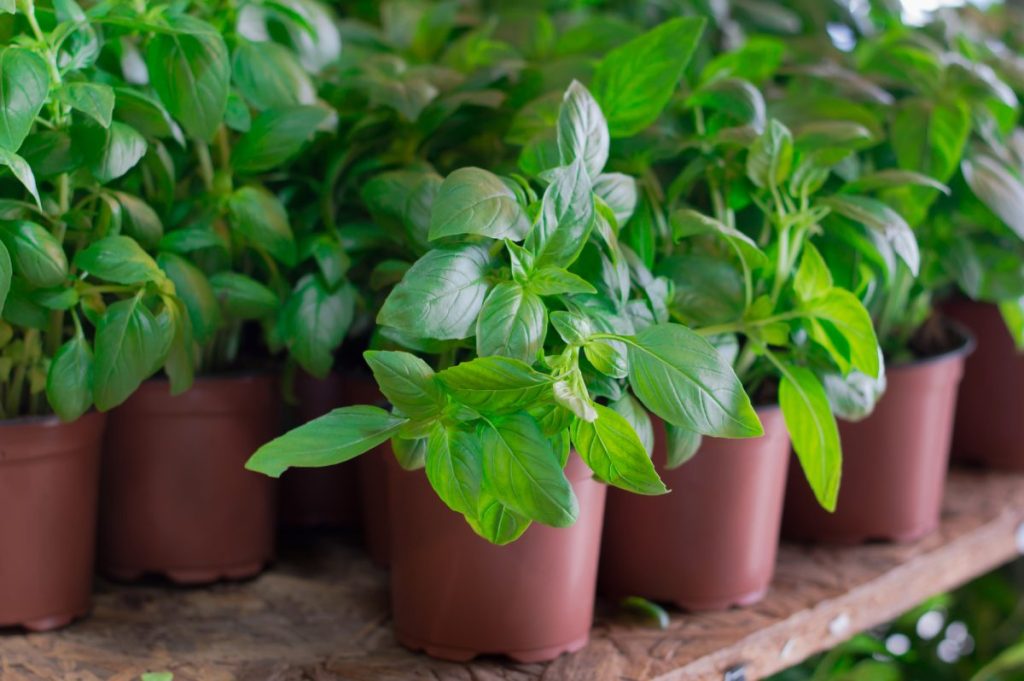
May your magical garden flourish, radiating its beauty, healing energy, and captivating scents. May it become a sanctuary of enchantment, where you can immerse yourself in the wonders of herbalism, find solace, and embark on a transformative journey of self-discovery and well-being.
Happy gardening, and may your path in herbalism be filled with endless fascination and enchantment!

